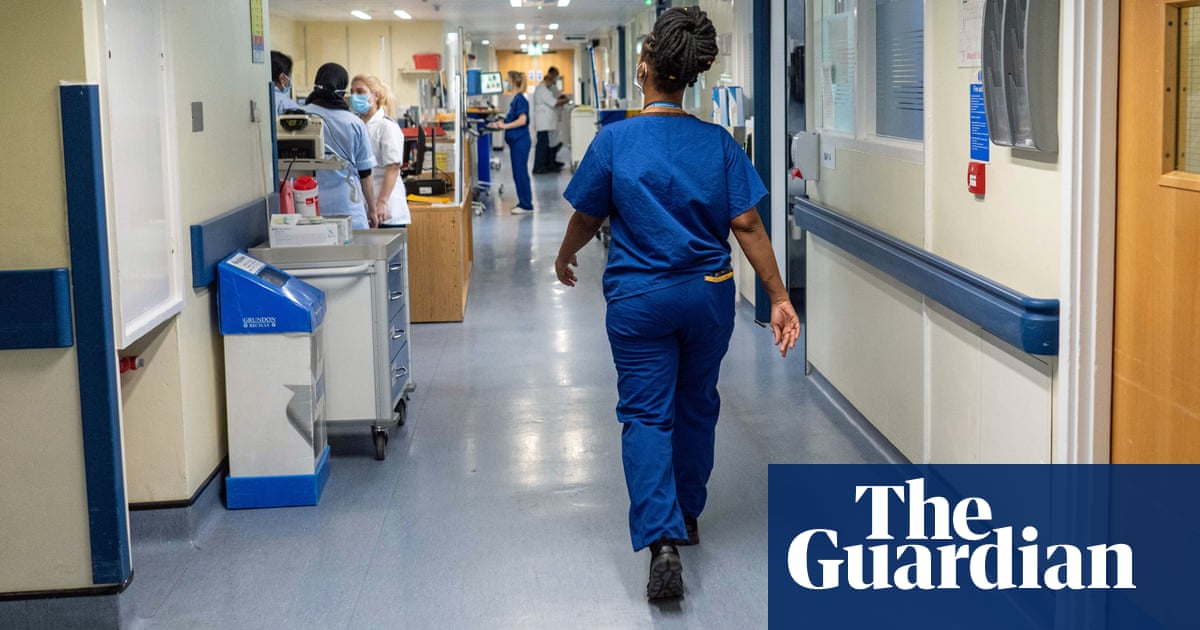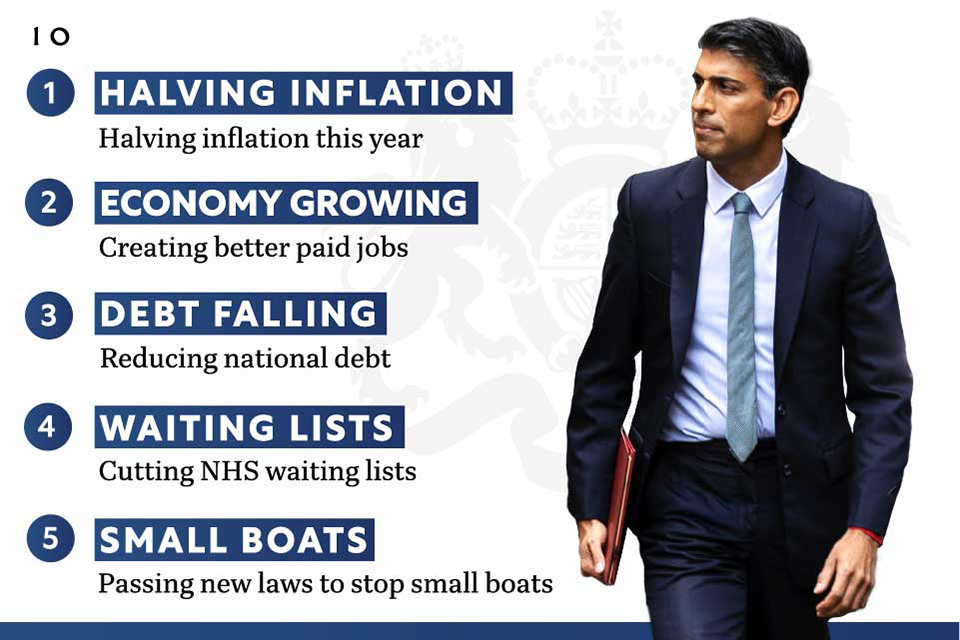Cowper’s Cut 310: On the Government’s huge efforts to avert the upcoming junior doctors’ strike

Simple stats since 2015
— Katie Bramall-Stainer (@doctor_katie) February 12, 2024
England general practice SOS
💥Over 1000 practices gone
💥Over 2000 GPs gone
💥Over 6,000,000 more patients on the books
💥 Equivalent of 1:2 population seen EACH month.
💥400 million consults per annum
💥7-8% of NHS funding
💥5% of all NHS staff
There was a lot of noise about primary care this week. As BMA GPC chair Katie Bramall-Stainer noted, since 2015, the sector in England has lost over 1,000 practices and over 2,000 GPs; while having over six million more patients on the books.
Primary care sees the equivalent of half of the population each month, with 400,000,000 consults per annum.
This is done on 7-8% of NHS funding, and with 5% of all NHS staff.

Data released this week showed that four-week waits for a GP appointment in 2023 hit a record high in the NHS in England. More than 17.6 million appointments took place at least 28 days after request in England: the highest such figure on record.
These 28-plus day appointments account for more than one in 20 of the almost 348 million appointments that primary care teams delivered in 2023.
About 50,000 people every day in 2023 had appointments for which they had been forced to wait more than a month: up by 38 per cent on 2022, when 12.8 million appointments took place more than 28 days after booking (3.9 per cent of the total), and up on the previous record of 15.2 million set in 2019.

It’s a shame, then, that as Health Service Journal reported this week, GP practice upgrades are effectively on hold. It’s almost as if the right hand doesn’t know what the further-right hand is doing.
HSJ’s Mimi Launder and Zoe Tidman report that “very little national NHS funding has been granted to primary care in recent years, leaving it even more reliant on commercial deals between GP partners and development/construction firms. In the past, the companies have been willing to invest in building new surgeries, or carry out expansions and improvements to ageing estate, on the basis they would recoup it through future rent payments funded by the NHS.
“However, the soaring cost of construction after Brexit and Covid-19, combined with GP rents being held down, means this route has now also dried up over the past year”.
Ooops.

Meanwhile, the Financial Times reported that “the number of applications to nursing courses at UK universities has fallen sharply, prompting the Royal College of Nursing to call for emergency measures to boost recruitment and address NHS staff shortages.
“The number of nurse student applicants fell 7.4 per cent in January compared with the previous year, according to data from the Universities and Colleges Admissions Service, leaving the government far behind on its targets to expand nursing training.”
Government efforts to avert the next junior doctors’ strike
Text to go here.
Text to go here.
Text to go here.
The Mundane Apocalypse in ‘not due to strikes’ shock
Lewisham hospital - this is not ok pic.twitter.com/BNFhqAfLfi
— Terri Adams (@TerriA21b) February 12, 2024
🚨 NEW: Critical incident declared today at @CUH_NHS with 60 patients waiting for a bed in A&E. Msg below also warns of long ambulance delays and crowding within A&E: pic.twitter.com/oNlr1vkIe6
— Shaun Lintern (@ShaunLintern) February 13, 2024
The last BMA junior doctors strikes finished on 9 January 2024: that is now five weeks ago.
🚨 NEW: More details on UHNM critical incident...msg to staff says hospital in "worst situation for the last 12 months" with 56 people waiting for beds. Majors and resus areas of A&E at 200% capacity and on wards 12 patients "in spaces that would not normally exist". https://t.co/lcky5uhXwF pic.twitter.com/BvfgiFuHsP
— Shaun Lintern (@ShaunLintern) February 13, 2024
Yet performance in the English NHS is still widely up a certain creek without a certain implement, as the above posts from Kiss (formerly Twitter) show. There is a black alert / Opel 4 incident declared, due to 78 full escalation beds at James Paget Hospital; there are 21 hour and 13 minute waits at Lewisham Hospital A&E. Cambridge University Hospitals had 60 patients waiting for a bed in A&E.
It has long been clear to members of the Reality-Based Community that (despite its apparent political convenience as an excuse) the correlative and causative relationship between these strikes over pay and conditions and NHS performance is neither clear nor linear.
(Anecdotally, it is very clear that people attending hospital for during the junior doctors’ strikes benefitted greatly from prompt review by consultant staff.)

You certainly can’t blame the strikes for the preponderance of 12-hour A&E waits over the past twelve months highlighted by the Liberal Democrats’ dive into the data, and publicised by the Mirror and Guardian.

More than 1.5 million patients waited 12 hours or more after arriving at A&E in England in the past year: that is 9.6% of A&E patients. January 2024 saw the worst figures with a record 177,805, facing A&E waits longer than that time (12.4% of A&E patients).
What is the official target? That no more than 2% of patients should wait 12 hours or more from their time of arrival at A&E.
GB or not GB: that is the question
‘We’ve put more money than ever in, but we’re also reforming the NHS as well… There's also a huge list of innovations that we've done, but we need to work through the strikes’
— GB News (@GBNEWS) February 12, 2024
Rishi Sunak is asked how he can convince voters he can make real change in the NHS.#GBNPeoplesForum pic.twitter.com/aHfDpUClim
On Monday night, PM Sunak went on GB News.
Somebody has to, I suppose.
He was taking questions live from a studio audience, which is all very well if you like that sort of thing. Unfortunately, the pressure of the occasion must have got to our querulous PM, as he inadvertently told a massive bunch of lies about the NHS.
“The good news though is we’ve seen that it’s started to fall, and that’s because we didn’t have strikes at the end of last year ... the first month we didn’t have strikes in the NHS, do you know what? The waiting list fell by 100,000.
“That gives me the confidence that our plans will and can work. Industrial action is something we will continue to work through, and we’ll continue to have those conversations with the doctors. I know that it will just get better over time if we can get the strikes behind us.”
Well, it’s a point of view. Albeit one you can only present by ignoring the facts.

The latest RTT performance data are here.

And the electoral recovery plan, setting out the backlog-busting targets, is here. It dates from after Covid was declared over, and states that
•By July 2022, no one will wait longer than two years for an elective treatment
•The NHS will aim to eliminate waits of over 18 months by April 2023.
•Three quarters of patients who have been urgently referred by their GP for suspected cancer will be diagnosed, or have cancer ruled out within 28 days.
•Returning the number of people waiting more than 62 days from an urgent referral to pre-pandemic levels by March 2023.
Every single one of those targets has been missed.
Based on the latest data (for December 2023), we know that there was a minuscule reduction in the overall RTT waiting list, with 7.6 million entries at the end of December 2023, a slight fall from 7.61 million at the end of November 2023.

In January 2023, when PM Sunak made his failed pledge, the RTT waiting list stood at 7.21 million. When I last checked, 7.6 million was more than 7.21 million. Even allowing for inflation.
There was nanotechnology-scale good news in December’s data, with 70.3 per cent of patients in England being seen within four hours in A&Es in January 2024 (up from 69.4 per cent in December 2023).
But.
The number of patients waiting for more than 12 hours in A&Es in the NHS in England rose by almost 25% in January 2o24. This was up from 44,045 in December 2023, which was the second-highest figure on record (the winner being the 54,573 recorded in December 2022).
The December 2023 data shows that two-year waits rose by 55 patient pathways to 282; and that over 18-month waits rose by 2,000 to 13,000.
As Insource’s Dr Rob Findlay noted, “both should have been eliminated by now. Over 15-month waits rose 4,000 to 98,000: the national target is to eliminate these by the end of March 2024”.
Ooops.
The available options to explain what PM Sunak said would be either that he is spectacularly stupid; that he is atrociously briefed by incompetents; or that he is a deliberate liar.
Breathtaking

Over the first three nights of this week, at 9 pm ITV is screening the drama ‘Breathtaking’, adapted from the bestseller by Dr Rachel Clarke.
It is a claustrophobic, documentary-style tension-rich retelling of events of the pandemic, in one fictionalised NHS hospital.
It’s hard to guess whether ‘Breathtaking’ will hit the public’s imagination in the same way that ‘Mr Bates Versus The Post Office’ did, given so many people’s absolutely understandable desire to forget the traumatic events of that period - but on the basis of a screening of the first episode, it is a very solid piece of work, that deserves wide attention.
Recommended and required reading
‘Making Care Closer To Home A Reality’ is the new report from the Kings Fund.
Latest ONS workforce data shows a record level of long-term sickness absence from the labour market.
Seven suggestions to help integration, as blogged for the Nuffield Trust by Nigel Edwards and Richard Lewis.
Andrew Dilnot proves that his optimism is unquenchable, as he tells The Observer that both main Westminster parties should “grow up” about social care reform.
The Sunday Times’ Shaun Lintern reports on the ongoing saga of a clinically negligent consultant spinal surgeon in Salford, whose patient list has still not seen a full recall.
David Haslam’s Pulse article on the importance of generalism is a fine read.
This is very good on NHS financial planning fiction.
Julian Patterson’s Blithering Health Commission column for HSJ is a joy.
The FT’s John Burn-Murdoch explores why high electoral turnouts nowadays favour the political right.
This is an excellent Kiss (formerly Twitter) thread by Phil Taylor on ten NHS successes that have had insufficient attention and credit.







